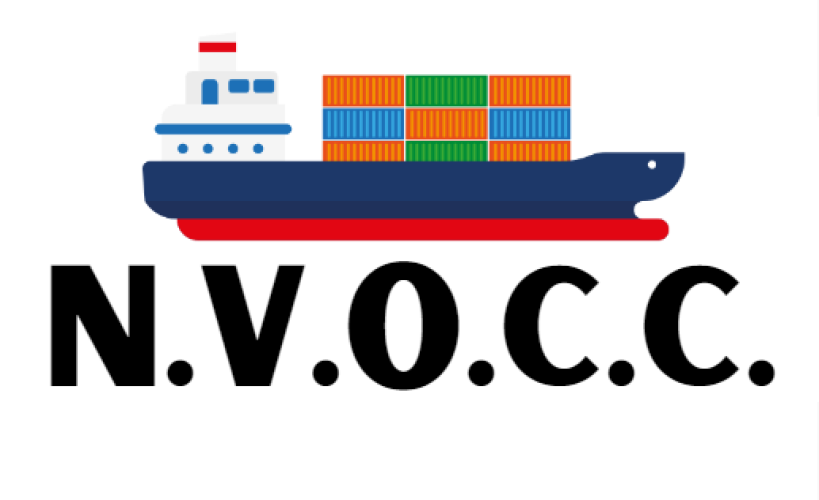NVOCC Shipping: The Role And Benefits In International Shipping
NVOCC Shipping: The Role And Benefits In International Shipping
Blog Article
Non-Vessel Operating Common Carriers (NVOCC) perform an important role in the shipping and Logistics Company, especially during international trade. Understanding NVOCC shipping is critical for firms that import and export. It provides a flexible and cost-effective alternative to traditional shipping companies, frequently giving more personalized service despite not owning any ships. This article discusses what NVOCC shipping includes, its importance, and the benefits it provides to global trade. What exactly is an NVOCC?
What exactly is an NVOCC?
The acronym NVOCC stands for Non-Vessel Operating Common Carrier. Unlike typical shipping corporations, which own and manage boats, NVOCCs serve as intermediates between shippers (exporters or importers) and the actual ocean carriers that express cargo They work similarly to freight forwarders, coordinating the shipping process for their clients, but with one significant difference: NVOCCs can issue their own bill of shipping (B/L), which is a legal document that specifies the terms and conditions of the shipping.
An NVOCC contracts space on ships operated by major shipping lines, consolidates products from many clients into containers, and arranges transportation. Once the cargo arrives at its destination, the NVOCC handles the unloading, customs clearance, and final delivery to the recipient.
Key Functions of NVOCCs
NVOCC provide a variety of services to help speed the shipping process:
Shipping The process: One of an NVOCC's key functions is to consolidate small shipments from multiple clients into a single container. This is known as less-than-container load (LCL) shipping. This allows smaller firms that do not have enough goods to fill an entire container to save money.
Freight Insurance Of Shipping: An NVOCC can create its own bill of lading, known as a House Bill of Lading (HBL). This document serves as a contract between the NVOCC and the shipper, outlining the details of the goods being shipped. It ensures that all parties are informed of their roles and duties.
Booking Cargo Services : NVOCCs work directly with ocean carriers to acquire space aboard ships for their clients. This enables them to offer reasonable rates while ensuring that shipments are handled efficiently.
Customs Clearance Services: NVOCCs frequently assist with customs documentation and clearance, ensuring that shipments meet all regulatory standards in both the exporting and importing nations.
Cargo Insurance: NVOCCs offer insurance policies to protect against potential losses or damages during transit.

Benefits of Using NVOCC Services:
NVOCCs provide various benefits, making them an appealing alternative for enterprises involved in international trade:
Cost-effective Shipping: For small to medium-sized enterprises, shipping expenses can be a major worry. NVOCCs cut transportation expenses by aggregating goods from several clients. Clients just pay for the space they utilize within the container, rather than for the full container.
Flexible Shipping Solutions: NVOCCs provide more flexibility than traditional carriers. They operate with different shipping lines, allowing them to tailor their services to the client's individual needs, such as reserving space on short notice or providing alternative routes in the event of a delay.
Complete Service: NVOCCs offer full logistical solutions, handling the entire shipping process from pickup to delivery. This enables firms to focus on their main operations without having to deal with the difficulties of overseas shipping.
NVOCCs have access to a huge network of agents and partners worldwide, allowing them to assist seamless and effective shipping operations in a variety of countries. Their global presence guarantees that shipments are handled professionally at all stages.
Enhanced paperwork Control: The ability to issue a bill of lading offers NVOCCs greater control over the paperwork process. This can result in fewer errors, shorter processing times, and a greater sense of accountability.
Differences Between NVOCCs and Freight Forwarders.
While NVOCCs and freight forwarders may appear similar, there are significant differences between the two.
Legal Responsibilities: An NVOCC accepts the carrier's legal responsibilities by issuing its own bill of lading. In contrast, freight forwarders act as intermediates and do not assume the carrier's legal obligations.
Pricing Control: NVOCCs negotiate their own rates with shipping lines and can charge their own prices to clients. Freight forwarders often offer rates set by the real carriers.
Scope of Services: NVOCCs specialize on ocean freight, whereas freight forwarders frequently handle multiple modes of transportation, including air, land, and sea.

Conclusion
NVOCC shipping is an important part of global trade, providing cost-effective, flexible, and efficient solutions to enterprises of all sizes. NVOCCs assist firms in dealing with the complexity of international shipping by aggregating cargo, providing bills of lading, and managing the logistics process. For businesses wishing to expand their reach across borders, partnering with an NVOCC can provide a dependable and scalable shipping solution that improves operational efficiency and reduces costs.
READ MORE-
NVOCC Shipping Company
Cargo Project
Cargo and Freight Insurance
Warehousing and Logistics
Customs Clearance in India
Clearance of Imported and Exported Goods
International Movers Services
International house shifting services
International Shipping
Air Cargo Tracking